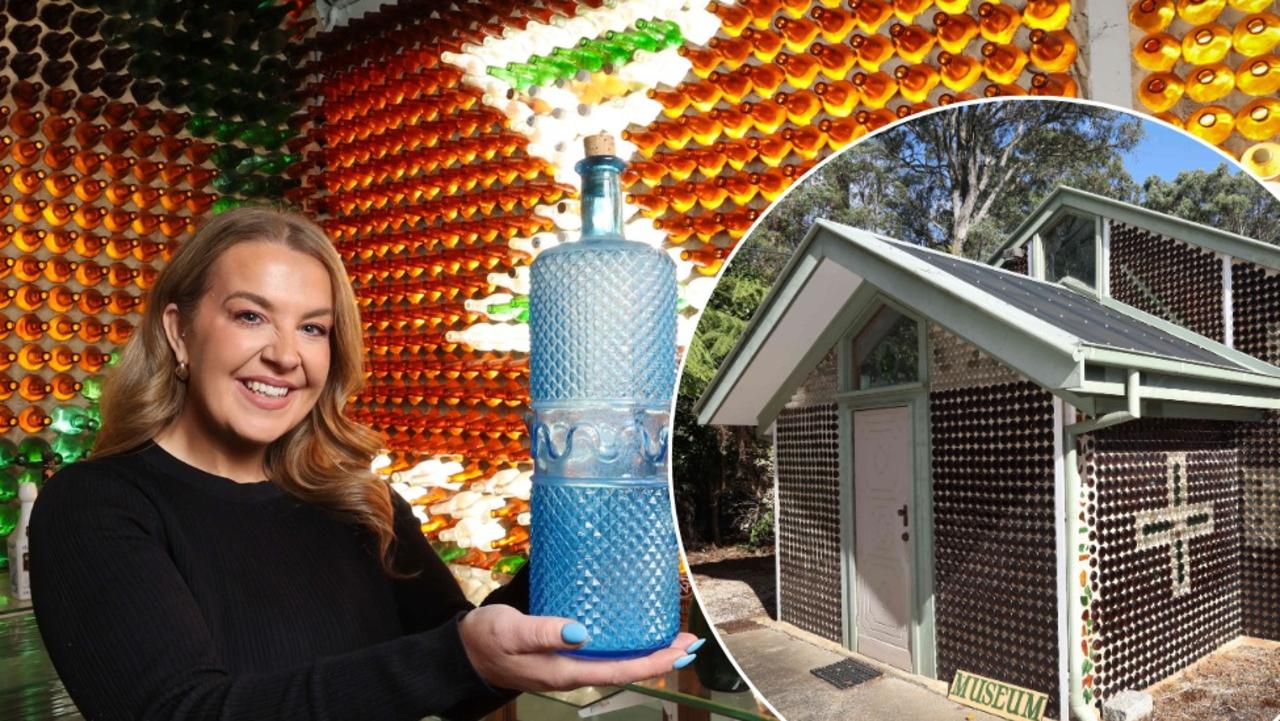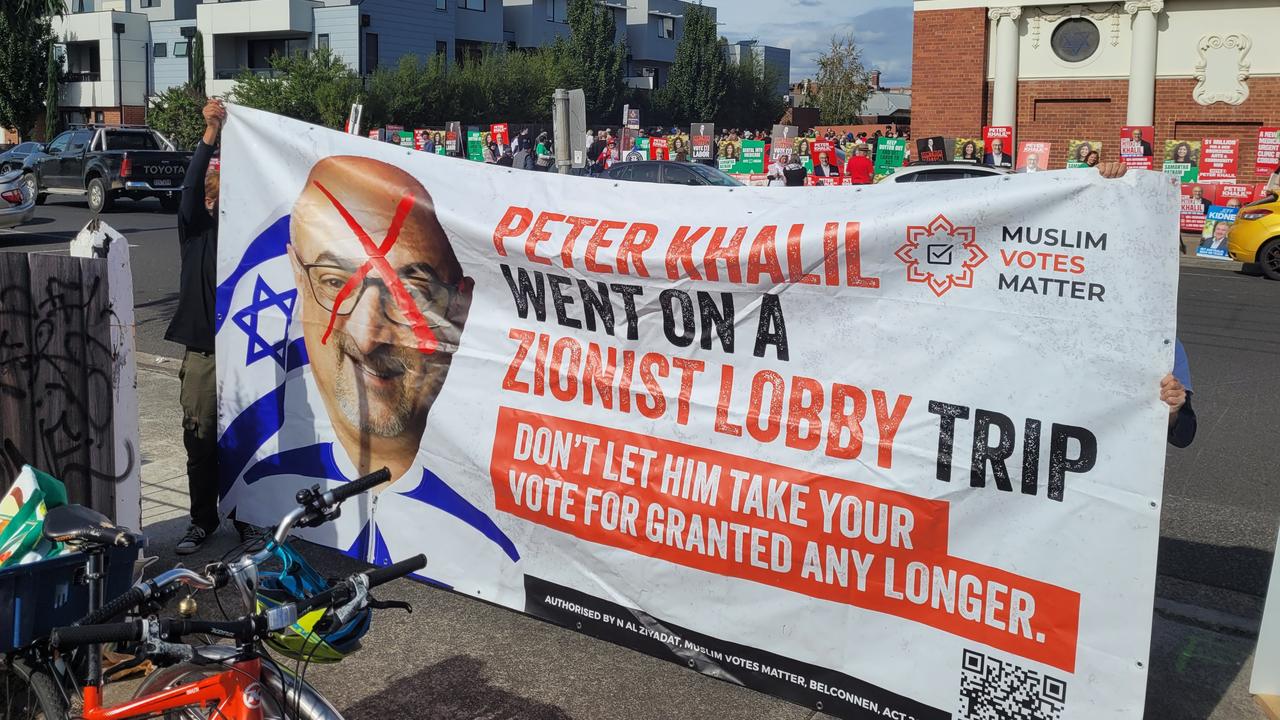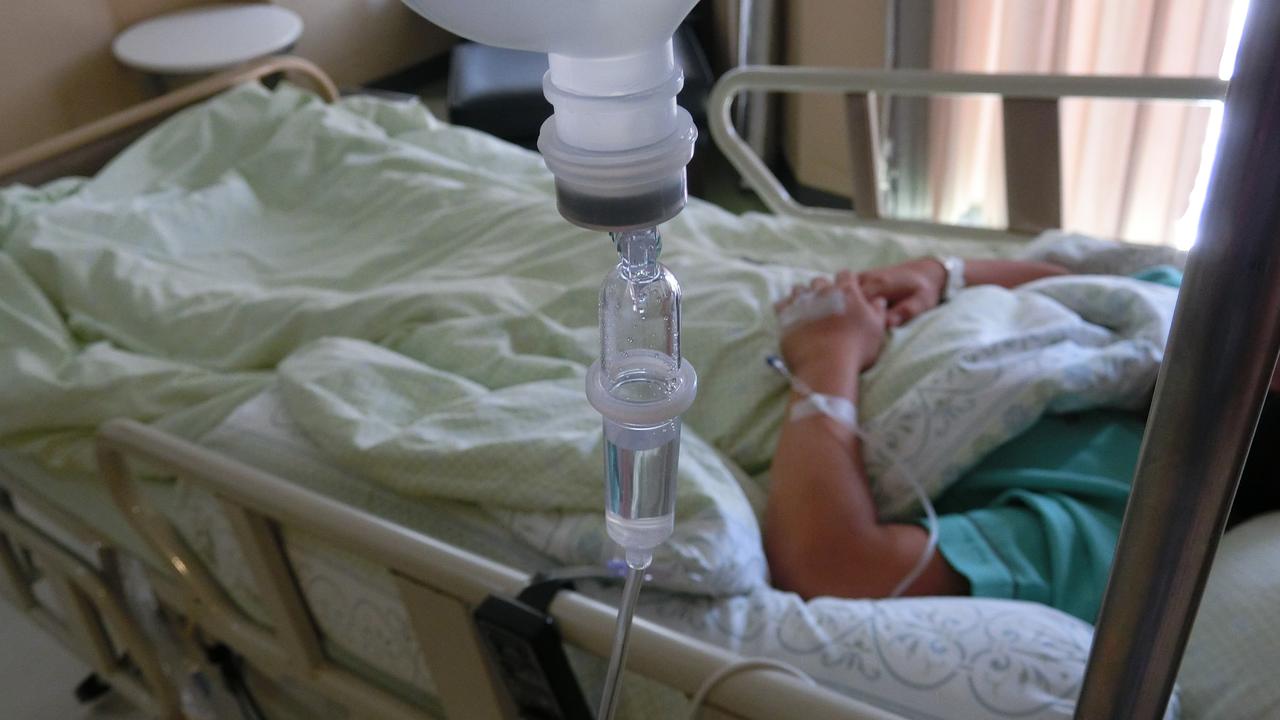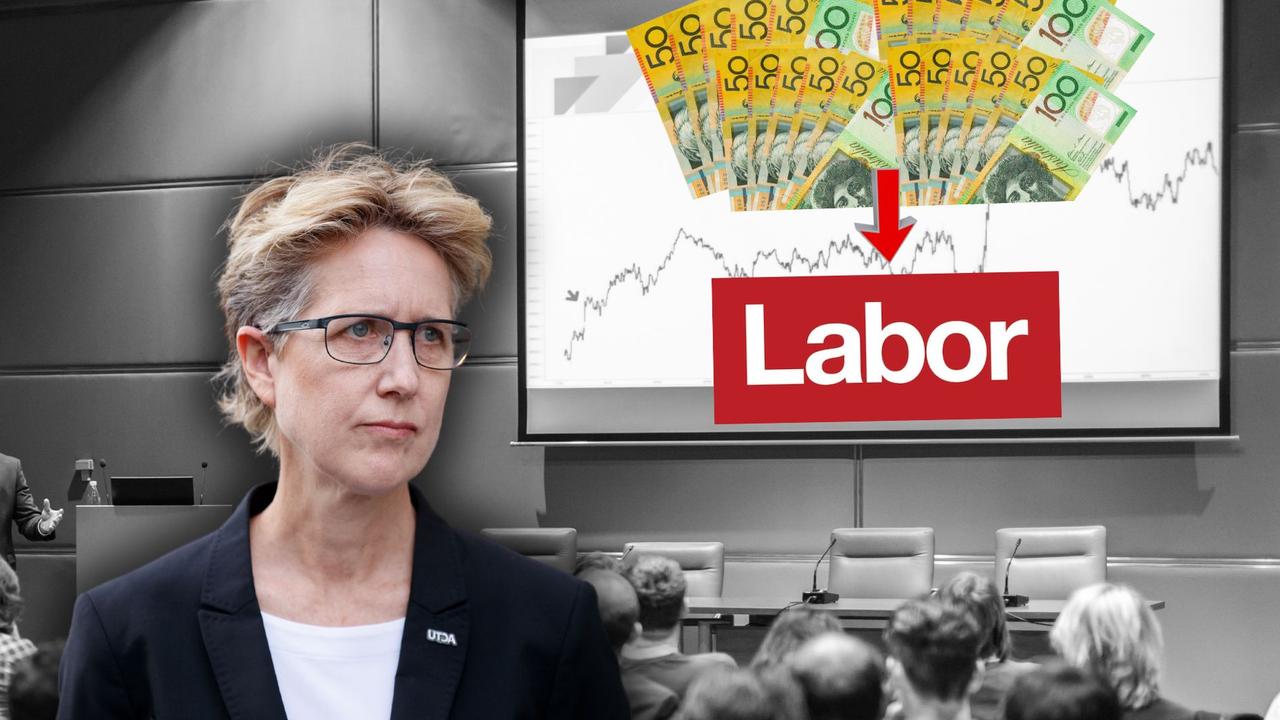Jordan Ablett says Levi has taught her, and husband Gary Ablett, how to love in a pure, selfless way
Receiving a heartbreaking diagnosis for their son, Levi, devastated Jordan Ablett and husband Gary. But in a new extract of her book she reveals that, despite facing obvious challenges, it’s made them better people.
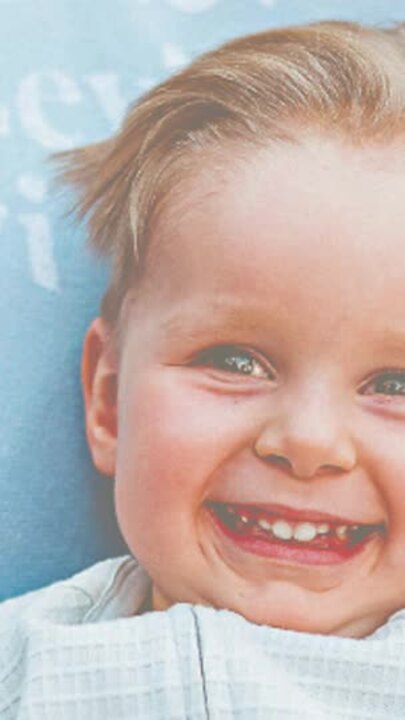
News
Don't miss out on the headlines from News. Followed categories will be added to My News.
For the first time Jordan Ablett has opened up about her life in a new touching memoir, One Day at a Time. In these exclusive extracts, she details how she and husband Gary Ablett Jnr have navigated life with their son Levi who suffers from a serious and rare genetic disorder, how she dealt with the death of her beloved mum and how romance blossomed between her and Gary.
One Day at a Time, by Jordan Ablett with Ellen Whinnett, is published by HarperCollins and available on April 30.
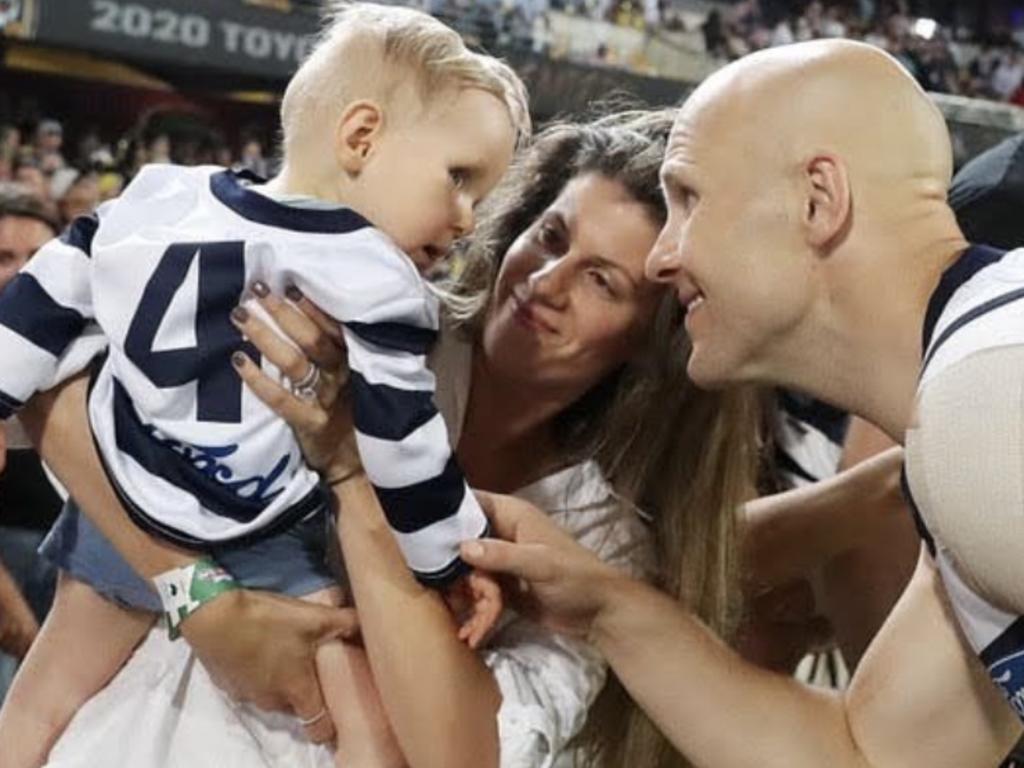
He Seems Perfect
In late October 2012, I woke up one morning to find a message on my phone from an unknown number. It was a long text, and I can’t remember exactly what it said, but it was a bit cheeky and said something along the lines of: Is this the amazing Jordan I’ve been hearing so much about?
The text was witty and very charming, and the sender identified himself somewhere in it as
Gary Ablett. I’d met Gary briefly before, but we’d only ever said ‘hi’ and ‘bye’. I didn’t know anything about him except that he was a friend of (my sister) Keinzley’s boyfriend Michael (Paynter) and an AFL player. It was Michael who’d given him my number. Michael is a musician and well connected in the entertainment industry. Through his connections he had met Gary somewhere a few years earlier. Gary and I had been at the same church service once – Michael had brought him along – and we were introduced out the front. I’d also seen him at Michael’s twenty-fifth birthday celebrations, but I hadn’t spoken to him that night.
To be honest, at first I was unsure about whether to respond to the text. I had a bit of an unfair perception of footballers and thought maybe I shouldn’t trust this random message. Looking back, I have no idea how I came to have such a view of them – the majority of the players I’ve come to know are amazing people. But then I thought about how Michael was at the centre of this and would never try to set me up with someone who wasn’t in it for the right reasons.
We talked about our values and the things we felt passionate about. I felt very comfortable in his company and loved spending that time with him. He seems perfect, I thought.
Gary had different life experiences to me – he was twenty-eight, he’d previously been in a long-term relationship, and he’d moved interstate. He was incredibly successful in his career, too, dominating on the football field and famed for his achievements. He had it all, in a worldly sense. But despite all of his success, he seemed so grounded and lived as though the fame and money weren’t the most important things to him. He clearly lived for more than that and held football in its rightful place. He never gave the impression that he was too good for anyone, and he always made time for people whether he knew them or not. I really loved that about him.

A diagnosis for our boy
The phone call came when I was driving along Anglesea Road about fifteen minutes from home on the afternoon of 12 May 2020. As I was confident it was Dr White, I pulled over as quickly as I could to take the call. She spoke in a way that made me think she had a diagnosis for Levi but didn’t want to share it over the phone.
Dr White asked us to make an appointment to see her as soon as possible. I recognised there was something serious going on, but I didn’t have the courage to ask her if she had found something. I was too afraid of what I might hear.
I agreed to come in the following day with G. We drove up from Jan Juc the next afternoon. Mum sent me a text which arrived as we were driving along the freeway. Hold hands and dribble love over your amazing little man – we will pray you through the day. Xo love you guys. After parking the car at the hospital, we put Levi into his pram and made our way to a meeting room in the neurology department.
As we sat down, I felt nervous and conflicted – we wanted a diagnosis, but at the same time, we didn’t.
Dr White led the meeting. She said she and Dr Ryan were confident they knew what they were dealing with now, though they needed to confirm it by doing further blood tests: they had found a mutation or change in Levi’s DNA.
‘We found it in your DNA too, Jordan,’ Dr White said. The doctors wanted to draw more blood from Levi. If, as expected, the results showed low copper levels, that would indicate Levi had a serious genetic disorder known as Menkes disease.
I broke down, sobbing, and Gaz put his arms around me. Strangely, the first words to fly out of my mouth were ‘My mum’s dying!’
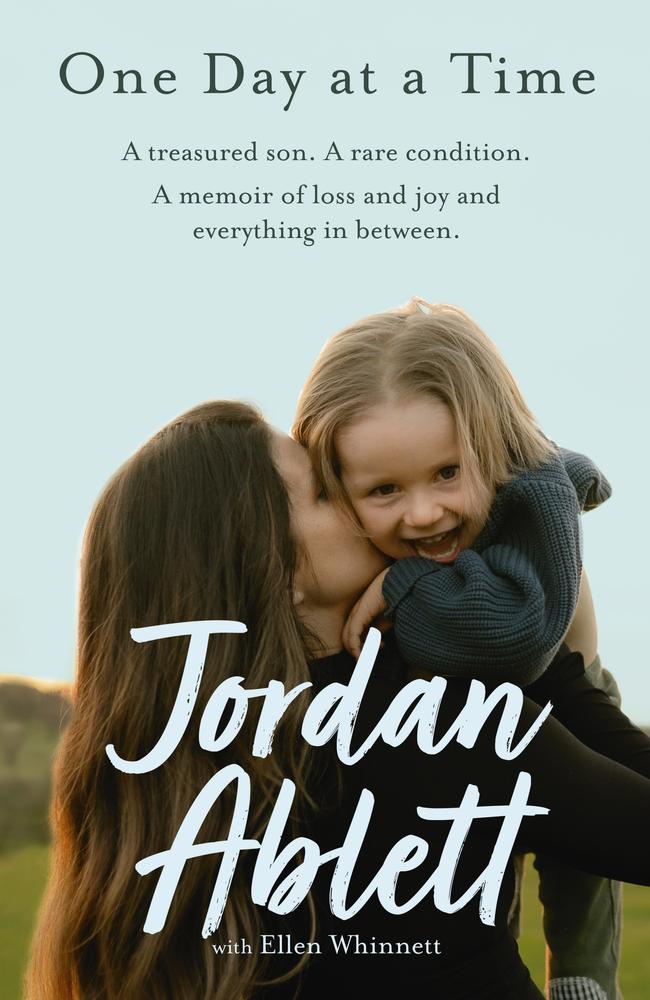
I’m sure what I said seemed to come out of nowhere. I think I was trying to explain myself, wanting them all to understand why I was so distraught – even though crying would have been a perfectly natural response to news like that, even without a terminally ill mum.
I was devastated. Even though we’d undergone genetic testing, before walking into that meeting I had never seriously thought that either of us, Gaz or myself, could have anything to do with what was affecting Levi. I found out later from Gaz that, unlike me, he had considered the possibility that Levi’s condition might have come from one of us. He’d been thinking about it on the drive to the hospital and hoped that if it was something Levi had inherited, it had come from him, not from me. He didn’t want me to feel I was somehow responsible. But of course I felt I was. I immediately started having irrational thoughts about how I had done this to Levi. I felt I was somehow to blame and had inflicted pain on my own child, something no parent would ever want to do.
The thoughts flooding my mind were irrational and just plain wrong, but in that moment they were so loud it was impossible to ignore them.
I could tell Dr White felt for me. She gave me a moment before telling us that the change was in a particular gene we all have, the ATP7A gene. She said this gene provides instructions to the body on how to make a specific kind of protein. The protein’s job is to move copper around the body, for use in strengthening bones, making red blood cells and absorbing iron. When a person’s ATP7A gene is damaged, they have too much copper in some organs and not enough in others.
She explained that our bodies need copper to develop and function. We only need a tiny amount, but it plays an important role in essential chemical reactions in the brain, which sends messages to our muscles. It is also vital for healthy skin and hair, strong joints and building and repairing connective tissue.
Children with Menkes disease cannot absorb copper normally, which affects their development. As they grow, they usually fail to thrive, and they are vulnerable to respiratory infections. With low muscle tone, it is much harder for children with Menkes to clear their lungs and fight those infections.
The doctors told us that children with Menkes have a very short life expectancy. Most live to just four or five. It all felt like too much to handle. Once again, two very significant moments in my life were happening at once. Mum had been diagnosed just before Levi was born, and now Levi was being diagnosed as Mum was dying.
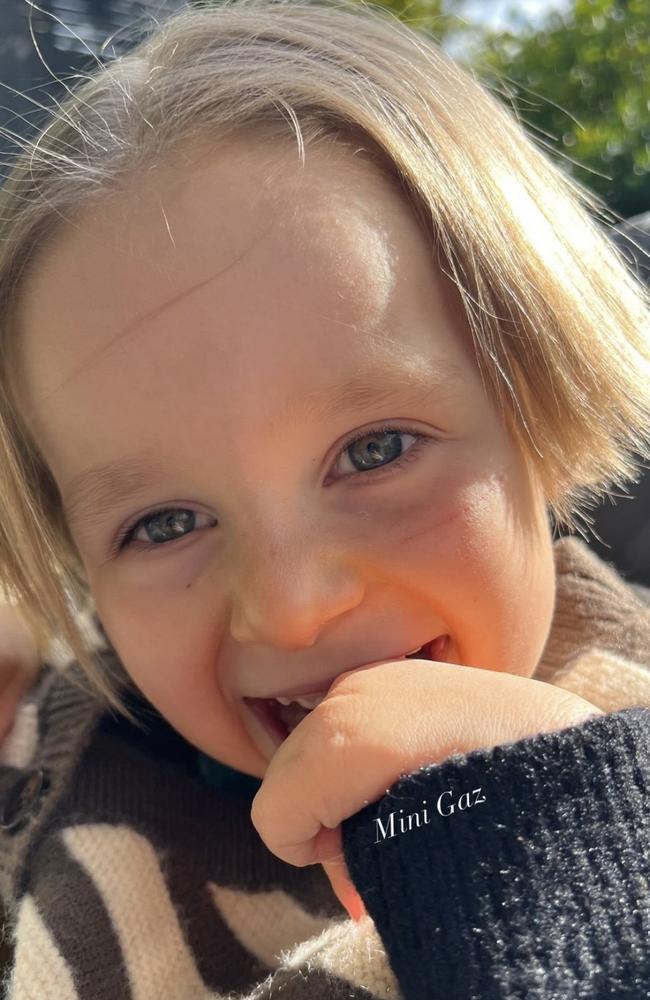
Even if those two things had been happening months or years apart, I would have needed time to work through each one. With them both happening at once, I had no time or space to process what I was dealing with. I felt like I was suffocating. Gaz was doing much better than me at holding it together, and he did his best to comfort me, but I could see he was hurting too.
After the meeting, we carried Levi to the pathology rooms for the blood test. The pathologists also took a sample of his hair to have a closer look at it under a microscope, because children with Menkes generally have distinctive hair, crinkly in appearance. The plan then was for Dr Ryan to call me the next morning to inform us of his results – his copper levels.
Both doctors had warned us about the risk of googling Menkes disease. They stressed that until they had confirmed the diagnosis, it would be unhelpful and confronting for us.
But of course, as soon as we got in the car, I started googling everything I could find on Menkes and I was, as they predicted, completely overwhelmed by it.
Our families knew we’d been going to the hospital for a potential diagnosis, so they were praying for us, sending us messages of encouragement and asking us to let them know when we were finished and how the appointment had gone.
But after the meeting, I wasn’t in the head space to talk, and I knew if I spoke with Mum in particular, I would have broken down again. I also didn’t want them to do what I had just done and start googling. So I sent a message to update them and said: They think they’ve found what they’re looking for, but they’re going to want to confirm it with a result from Levi’s bloods, and will let us know tomorrow, so if it’s okay, can we please talk then? It would have been a really anxious night for everyone to have to wait that out, especially for Mum, but they respected our request.
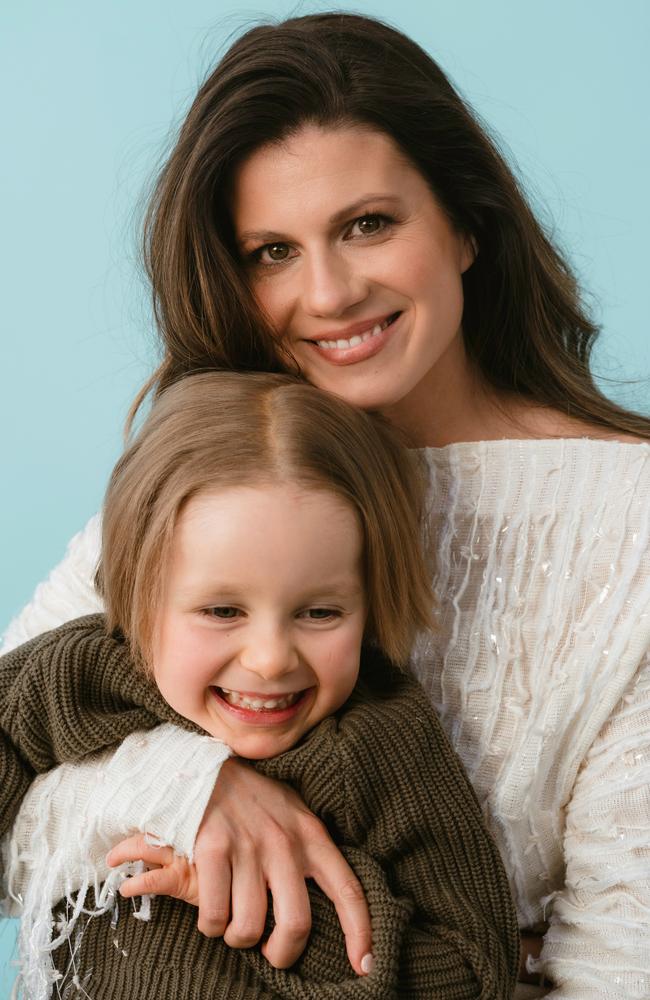
Gone from my Sight
I was booked on the 2pm ferry from Sorrento to the Bellarine Peninsula and was cutting it fine. I took Levi into Mum’s room to say goodbye and let her know we would be back the next day. It all felt quite rushed, but I told her we loved her and would see her soon.
I will never forget her tired but still beautiful blue eyes looking into mine for what turned out to be the very last time. When we returned from Jan Juc, she was unconscious. I wonder what she must have been thinking when Levi and I hugged her goodbye that day. Did she know deep within herself she would never again look into her baby girl’s eyes and hold her grandson’s little hand – on this side of eternity, anyway?
For the past couple of weeks, Mum had been wearing a medical alert on a lanyard around her neck, which she would push to let us know when she needed anything. (My sister) Nina had been looking after Mum the night the syringe driver went in and, with Mum sound asleep, she’d gone upstairs for the night, with the alert monitor beside her.
Usually Mum would wake several times during the night, thirsty and needing her asthma puffer. But on this occasion, when Nina woke up early the next day, she realised Mum hadn’t called for her all night. Nina threw herself out of bed and ran downstairs to find Mum still in a deep sleep.
Mum was unconscious for the next three days. We spent almost every minute by her side, lying on a big mattress we’d put on the floor next to her bed, so we could always be close, and sometimes I’d put Levi on the bed beside his beloved Nanna and we’d listen to Nina quietly playing the piano.
The nurse had told us that hearing is often the last of the senses to go and encouraged us to continue to talk to Mum.
For the past three days, Mum’s breathing had been laboured and loud. But now it seemed to be slowing, becoming easier and softer.
I shot up off the mattress and leaned down as close as I could to Mum. I put my hand on her chest and whispered into her ear, hoping she could hear me, because I didn’t want her to feel alone. I told her, with a shaky voice, that I was with her and I loved her. I told her it was going to be okay. I hadn’t realised I had woken Nina, but she too was now leaning over Mum and holding her hand.
After being expressionless for so many days, Mum’s face briefly tightened, then relaxed, and she breathed out deeply one final time. I could see she was no longer there. But although she had taken her last breath here on earth, I knew she was alive in eternity.
Today not Tomorrow
Never did I imagine becoming a parent of a child with a disability – yet here I am. There is so much grief to work through. I know I will never have the same relationship with Levi I have with Grace and Ezra. I can’t talk to Levi about his day, and I can’t fully know what he is thinking. I love him as fiercely and deeply as I love my other children, and I know he loves me too. But I will never hear him say, ‘I love you, Mum.’ There are a lot of things I presumed would happen for Levi that I know won’t happen. His first day of school. Kicking a ball in the backyard with his siblings. Dating. Becoming a husband. Levi will never marry, or have children of his own.
I’ve come to learn that the things I felt had been unfairly taken from Levi, those hopes and dreams I had for him, were never actually promised or guaranteed, nor are they for any of us. We can’t know what the future holds, so there is absolutely no point in worrying about it and letting fear of the future rob us of peace today. All we are guaranteed is the moment we are living in, and that’s what we should try to focus on. Each day is a gift, and what we face today equips us for what we will face tomorrow.
I have two roles as Levi’s mum. I lavish my love on him and care for him as all parents do for their child. But in some ways, I also care for him as a carer would. It’s physically and emotionally exhausting, and it can sometimes put a lot of strain on other areas of my life.
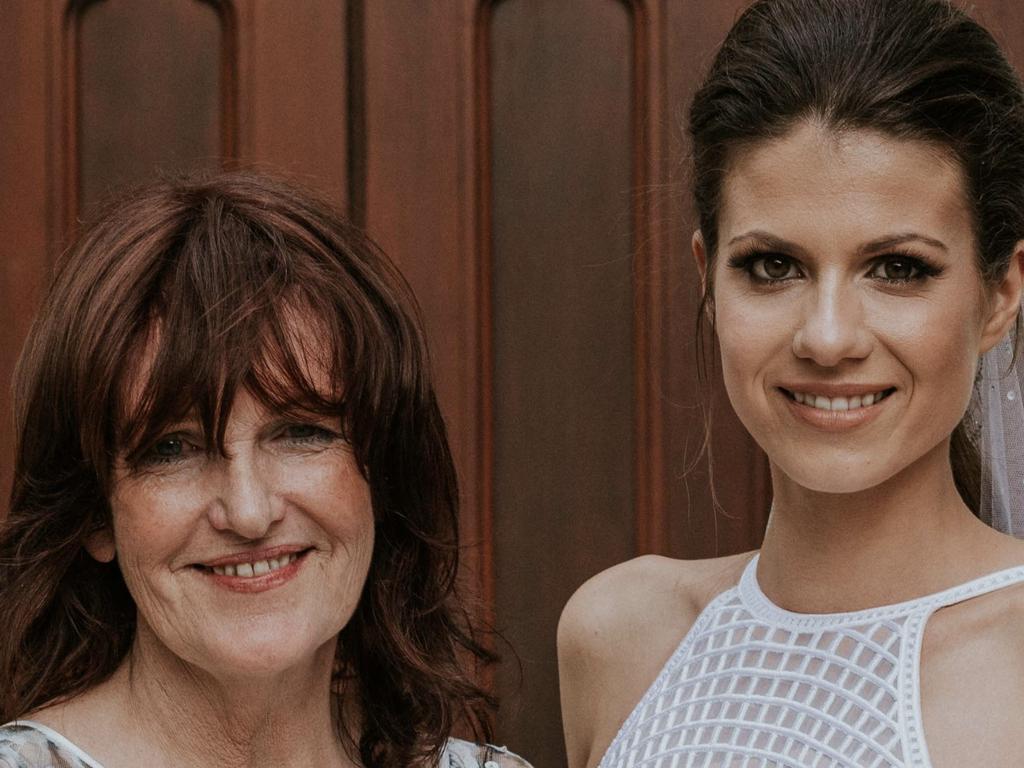
Parenting a child with a disability can make you feel as if people don’t understand you – but how can they, really, when the vast majority don’t have the first-hand experience of parenting a child with high needs? I know I certainly didn’t, before Levi.
It can also be incredibly hard on relationships. Marriage takes work at the best of times, and having a child with additional needs in the family brings a new level of unexpected responsibility. The strain can push some couples to breaking point. Gaz and I have had some really hard days, but we get through it by reminding each other we’re a team, and no matter how difficult things get, we are in it together.
Despite all these challenges, we know Levi is a rare treasure. I feel he has taught us how to love more selflessly. It’s one thing to serve someone who can give you something back, but it’s a completely different thing to serve someone who, besides his love, can’t give you anything in return. It’s the purest form of unconditional love. Loving so selflessly isn’t easy, because it runs counter to our self-centred nature. But putting ourselves aside and choosing to serve him every day grows us and, ultimately, makes us better people.
We’ve previously shared some details of Levi’s journey through our social media accounts. We think carefully about which parts of his life we make public and the reasons we do it. We always respect his dignity and never post photos or videos in which he is in any way vulnerable. Occasionally, we’re asked why we don’t share more about our other two children on social media, and it’s a valid question. Gaz and I have had a lot of deep conversations about this, and we want Grace and Ezra to be able to make their own decisions when they’re older about how much of their life they’re happy to share publicly. The sad reality is that Levi won’t have to consider those same decisions, thinking about a future peer group or employers. Also, Levi’s story is a powerful one, and we’ve seen how it brings hope and joy to many families. Why would we withhold that?
Originally published as Jordan Ablett says Levi has taught her, and husband Gary Ablett, how to love in a pure, selfless way



